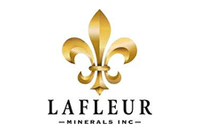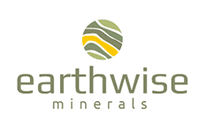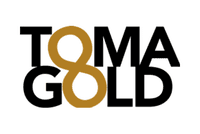Rob McEwen: The Gold Price Will Reach $2,000 this Year
And yes, $5,000 gold is still a possibility in the future.
Rob McEwen, chairman and chief owner of McEwen Mining (TSX:MUX,NYSE:MUX), is well known for his prediction that gold will hit $5,000 per ounce, and at this year’s Prospectors & Developers Association of Canada (PDAC) conference, he said he still sees that happening — though probably not for four or five years.
In the shorter term, he believes the gold price could reach $2,000 by the end of 2017, buoyed at least partially by US President Donald Trump. “Everything he’s doing is strengthening the confidence in the dollar — almost everything. And so the dollar’s going up and gold’s … having trouble staying with the dollar,” McEwen told the Investing News Network on the sidelines of PDAC.
“But when he’s looking at making America great and saying, ‘we want to produce everything we use in America rather than importing it’ … if he starts producing at home, the cost of goods is going to go up, and then you’ll see inflation expectations coming back into the market. And with that you’ll have gold, silver and other hard assets doing that.”
Listen to the interview above to hear more of McEwen’s thoughts on the gold market, his company and the #DisruptMining contest held at PDAC this year. You can also click the links below to skip directly to specific parts of the interview:
- 0:27 (the Goldcorp Challenge and crowdsourcing) — “I think [crowdsourcing is] a great way of spreading ideas … the biggest gold mine in the world is between everybody’s ears.”
- 2:43 (#DisruptMining co-winner Cementation Canada) — “It’s currently in a test phase … but it could really reduce costs. That’s why it was attractive to me, and yes, I could see it operating on one of our properties.”
- 3:35 (McEwen Mining’s 2017 plans) — If all goes well, construction will begin at the company’s Nevada-based Gold Bar project in Q4 2017, and it will be up and running in 2018.
- 4:52 (Trump’s effect on the gold price and mining in the US) — “It’s a very pro-business environment. It’s very exciting to see.”
- 6:44 (2017 gold price prediction) — “This year I think you’re going to be up around $2,000 by the end of the year.”
The transcript for this interview is available below.
INN: You were one of five judges at Sunday’s #DisruptMining event, where five finalists pitched their disruptive new mining technologies. Can you tell me a little bit about your background in crowdsourcing ideas in the mining space, and talk a little about why you find crowdsourcing a compelling tactic?
RM: I’d be happy to. Back when I was running Goldcorp, in 2000 we launched a contest called the Goldcorp Challenge. It is today considered one of the first successful examples of incentivized crowdsourcing. I was frustrated by our geologists … we had a discovery in Red Lake. When I asked them how big it would ultimately become, they said, “we don’t know.” And I said, “well that’s a lousy answer.” Then I asked, “how long is it going to take you to find out?” And they said, “we don’t know” — another lousy answer.
That set in process some brainstorming that I wanted to do to bring all our geologists together. At one point I went, “you know, on every continent there’s similar geological settings, and so there should be experts.” The question was, “how do we access them?”
I ended up in Boston at MIT, and that was to learn about information technologies. While we were there, we started talking about Linux. When I heard that, the light bulb just went off and I went, “there it is! That’s the template I want to use.” And so, I ran back home and said, “let’s take all of our geological data, throw it up on the web, ask the world to tell us where we’ll find the next 6 million ounces of gold in our mine, and offer half a million dollars in prize money.”
That was how it started. What came out of that, though, was something really amazing. Not only did we find a lot of gold, but [there] was the realization that the biggest gold mine in the world is between everybody’s ears. How do you connect those thoughts together? The web was a wonderful way of doing that. I think it’s a great way of spreading ideas and looking at everybody’s own ideas, and focusing it on a problem statement.
INN: It sounds like it’s been really successful over the last years. I wondered what your favorite concept was at Sunday’s event. Is the technology that you saw there something you could see being used at McEwen Mining?
RM: I voted for two. One was Cementation Canada, the other was Kore Geosystems, which was dealing with drilling. Cementation was a different way of hoisting ore deep in an underground mine. I thought it had a lot of applications. It’s currently in the test phase. I think there will be a mine that comes along and someone is going to say, “try it.” It could really reduce costs. That’s why it was attractive to me, and yes, I could see it operating on one of our properties.
INN: Can you talk a little bit about McEwen Mining’s plans for 2017? It sounds to me like there’s a lot of work going on at the Gold Bar project in Nevada. I’d be interested to hear how you think Trump’s presidency could impact it and other projects in the US.
RM: I’ll start by saying our goal is to get into the S&P 500 Index (INDEXSP:.INX) — 99.9 percent of all the precious metals mining companies in the world can’t get in because you have to be an American company to get in. McEwen Mining is Colorado incorporated, and there are only three companies with market caps over a billion, which are Hecla Mining (NYSE:HL) and ourselves. So we’re shooting for that, and there’s one gold stock in there.
Gold Bar will be our first American property. We had good news recently. The federal government has posted our notice, so there is a 45-day window right now for comments. We passed that. We’re hoping to get a permit at the end of the third quarter of this year. If all goes well, we’ll start construction in the fourth quarter and be up and running in late 2018. We’ll be doing about 65,000 ounces a year, cash cost around $700, all-in cost about $850 and run for seven to eight years as we currently know it.
INN: And Trump as president?
RM: I mean, the market loves him right now. You look at the Dow Jones Industrial Average (INDEXDXJ:.DJI). Despite what everybody said before the election, the market is very excited about reducing the amount of regulations, so speeding up the ability of business to put money to work, cutting taxes. It’s a very pro-business environment, I think it’s very exciting to see.
INN: What about gold itself? It seems like sentiment is a lot better than it was a year ago, but the gold price hasn’t really moved much. What factors do you think could make that happen?
RM: That’s where Trump comes into play again. Everything he’s doing is strengthening the confidence in the dollar, almost everything. And so the dollar is going up, and gold is going — it’s having trouble staying with the dollar. It often moves in an inverse direction, sometimes it moves parallel. But right now it’s going the other way, and people are saying, “it’s more fun being in the broad market than being in the gold market, I don’t have to be concerned about it.”
But when he is looking at making America great and saying, “we want to produce everything we use in America rather than importing it” — America has gotten used to importing very inexpensively produced goods offshore, and that’s why all sorts of things are a lot cheaper today. So if he cuts those off and starts producing at home, the cost of goods is going to go up. And then you’ll see inflation expectations coming back into the market. With that, you’ll have gold, silver and other hard assets doing that. And maybe even the stock market is telling us that right now.
INN: Final question. Your gold price prediction for this year?
RM: I have a $5,000 price longer term. This year, I think you’re going to be up around $2,000 by the end of the year.
INN: How much longer term is the $5,000 gold prediction?
RM: That’s a good one, but I think it’s probably four or five years.
Don’t forget to follow us @INN_Resource for real-time news updates!
Securities Disclosure: I, Charlotte McLeod, hold no direct investment interest in any company mentioned in this article.
Editorial Disclosure: The Investing News Network does not guarantee the accuracy or thoroughness of the information reported in contributed article. The opinions expressed in these interviews do not reflect the opinions of the Investing News Network and do not constitute investment advice. All readers are encouraged to perform their own due diligence.
Related reading:
PDAC 2017, Day 1: Notes from the Floor
PDAC 2017, Day 2: Notes from the Floor
PDAC 2017, Day 3: Notes from the Floor





